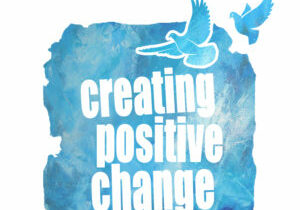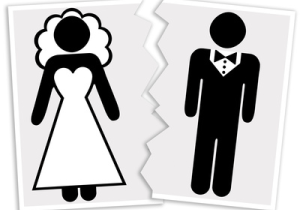
Infidelity: You’ve discovered your spouse has cheated. What should you do now?
Relationship infidelity is a common reason couples seek marriage counseling. Many couples, though, do not get professional help when the infidelity is initially discovered. Instead, they try to resolve it themselves and frequently attempt to “forgive and forget”; unfortunately, that usually doesn’t work! Eventually, those couples come to counseling for other problems, such as: “We don’t communicate well”, “I’m not in love anymore”, “I think we’ve just grown apart”, “I’d like to have more sex”, and “He doesn’t help, and I feel alone in this marriage”. In my experience, when couples do not receive the guidance of an experienced relationship therapist at the time the infidelity was discovered, recovery may be delayed or never happen at all. Because they are not able to fully complete the healing and reparation process needed to truly forgive and forget, they find themselves unable to trust and feel emotionally safe in their marriage again.
Your Spouse Had an Affair: What Now?
If you’ve recently learned that your partner cheated on you, there are three good options to begin to deal with this rupture in your marriage. But my very first recommendations to couples are usually:
- Don’t make any major decisions about your marriage for a few months;
- Don’t sweep this under the rug; a conversation and promises are not enough. (In order to prevent another affair, it is important to explore the conditions that led to the infidelity happening in the first place.)
Three Options for Dealing With Infidelity Are:
- Continue to live together while you go to counseling. (In this option, it is important for the partner who cheated to be patient with and give requested space to the partner who was betrayed. Sometimes, that means sleeping in the guest room for a while; sometimes, that means going for a walk or a drive if your spouse is feeling crowded.)
- Live apart while you go to counseling. (In this option, it is important to have a date night at least once a week, and a family activity–if you have children–at least once a week as well). As you can see, in Option 1, the danger is being around each other too much (which can spark fits of anger that are difficult for both partners); and in Option 2, the danger is too much time apart, in which case one or both spouses can begin to develop emotional distance. As with any marriage challenge (and this is a big one), learning to work as a team and respect each other’s feelings is important!
- If your spouse has cheated more than once ( If you have actually confirmed the cheating and do not just have suspicions), AND you have participated in counseling for at least 12 to 16 sessions as a couple, or 8 to 12 sessions on your own (if your partner refused to go), AND your partner shows no signs of significant change in behavior and belief, then it may be reasonable to conclude that your spouse might have a chronic cheating problem (this can be similar to an addiction). In that case, your best options will be either to accept that as an unchangeable character flaw (and learn to practice detachment with love or leave the marriage.
Should You Tell the Children?
No, absolutely not. Not ever. Not when they’re 12, and not even when they’re 30. Whether they are young or they are your adult children, hearing of a parent’s infidelity causes pain that is unnecessary, and children feel pressured to pick a side.
Your children will likely need to be told something, though, because they will sense a change in your marital and family dynamic. Regardless of their age, you can pretty much say something along the lines of: “Mom and Dad are working through some problems in our relationship. This is completely normal. All types of relationships have problems to figure out sometimes. That’s true of brother and sister relationships, friendships, and marriage relationships. Sometimes, a problem can be resolved quickly, and sometimes it can take longer. We don’t know how long this will take, but it is mommy’s and daddy’s job to work on this problem. Your job is to continue your normal days and your regular activities. We both love you very much, and that will never change. We will always be your mom and dad.”
If children ask questions like: “Are you getting divorced?”, until you have signed divorce papers, went to court, looked the judge in the eye and told him/her that your marriage is not reconcilable, there is no reason to keep your children up at night worrying about divorce (and believe me, they do worry about it). You can answer that question with something like: “Right now, no major decisions have been made, and we are still trying to figure things out. We will let you know if something changes. But for now, we are doing our best to deal with this as a family.”
Should You Get Counseling for Your Children?
At some point, probably yes. Admittedly, I’m biased because I’m a huge fan of counseling for children in general. There are many things in their lives that they face and don’t know how to deal with. Regardless of the initial reason a child is brought to counseling with me, I end up teaching them all sorts of life strategies and coping skills that most of us probably wished we had learned as kids. (I know I wish I had learned some of this; it would have saved me a few tears along the way!)
In counseling kids can learn: how to understand their feelings and what to do with them so that they don’t turn into stomach aches or behavioral problems; how to deal with bullies and teasing in school; how to have good self-esteem and develop confidence; how to have empathy and be caring to others; how to make and keep friends; how to resolve conflict with friends; how to talk with their parents about a problem or just to share what’s going on in their lives. These are just examples. Therapy for kids is almost more like life coaching; they learn skills to become successful, happy and well-adjusted. Who wouldn’t want that for their children?
RELATED POSTS and PAGES:
What are you using for email - Subscribe form here.
Get In Touch
(954) 559-2936
We Are Hiring!
We are always looking for great clinicians and administrative staff. If you are interested in working with us, email your resume and a brief note to [email protected]
Tour Our Office
Our counseling, therapy and psychiatry office in Greater Fort Lauderdale, Florida is private and cozy.
Take a peek inside!


Dr. Chantal Gagnon
Dr. Chantal Marie Gagnon, Ph.D., LMHC is a licensed psychotherapist, relationship counselor, and life coach in Plantation, Florida. Dr. Gagnon provides individual therapy, family counseling services, and couples therapy in her Plantation, FL office. Coaching services are available nationwide.
Did this Article Help?
Here are a few more you might want to Read


















